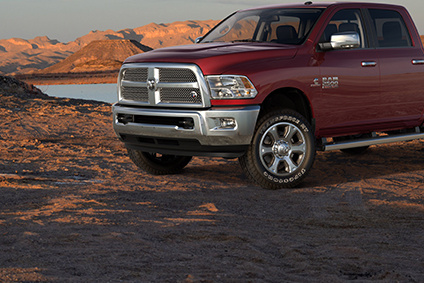(New York) The American engine manufacturer Cummins, accused of having installed equipment to cheat the exhaust emissions controls of hundreds of thousands of Ram brand vehicles (Stellantis), will pay 1.67 billion of US dollars to avoid a trial, the Justice Department announced Friday.
The department specifies that an agreement in principle was reached with the company on the one hand, and the American federal authorities and the State of California on the other, to extinguish proceedings “for violation of the quality law “, the Clean Air Act (CAA).
This agreement must still be validated by a federal court in the capital Washington.
According to Attorney General Merrick Garland, quoted in the press release, if the agreement takes this final step, it will be the largest sanction ever imposed under the CAA, adopted in 1963, and the second largest for a case linked to environmental pollution.
The largest sanction was imposed on the oil group BP in a deal to pay $20 billion to avoid a lawsuit over the 2010 Deepwater Horizon oil spill, considered the worst in history .
The CAA law requires that “vehicle and engine manufacturers ensure that their products comply with the emission limits” of exhaust gases, recalls the department.
But Cummins is accused of having installed “equipment” – spare parts or software – to thwart the devices controlling these emissions, “by bypassing them, deceiving them or making them inoperative”.
The department says the company is suspected of installing such equipment on 630,000 Ram 2500 and Ram 3500 pickup engines between 2013 and 2019.
It is also accused of having installed an “auxiliary emissions control device” on 330,000 examples of these same two models between 2019 and 2023.
Asked by AFP, the Stellantis group – owner of the Ram brand – referred to Cummins for further details regarding this matter, simply indicating that Cummins was still one of its suppliers.
In a statement, the engine maker said it had conducted “a thorough internal review and worked collaboratively with regulators for more than four years.”
“The company has found no evidence that anyone acted in bad faith and does not recognize any wrongdoing,” it said, adding that the recall of the affected vehicles had begun. It has already set aside $59 million to cover the costs.
But it will include in its accounts for the fourth quarter of 2023 a charge of around $2.04 billion for several cases involving a total of around a million vans.
Cummins, founded in Columbus, Indiana, in 1919, has some 73,600 employees. In 2022, it had revenue of $28.1 billion and net profit of $2.2 billion.
This is not the first time that a case of vehicle emissions cheating has occurred, the most emblematic being “Dieselgate”, which caused a global scandal and heavily damaged the reputation of the German automobile industry.
In 2015, following accusations from the American environmental agency (EPA), Volkswagen admitted to having equipped eleven million “EA 189” type engines on its diesel vehicles with software capable of making them appear less polluting. during laboratory and road tests.
The group has since had to pay more than thirty billion euros in reimbursements, compensation and legal costs.
